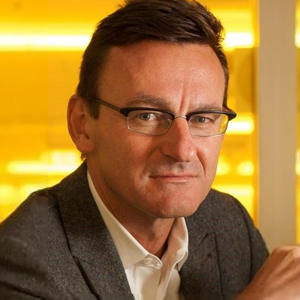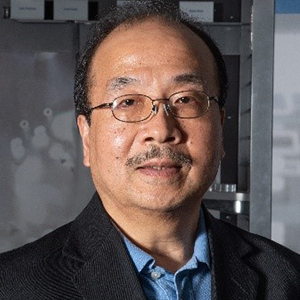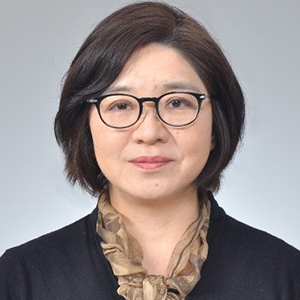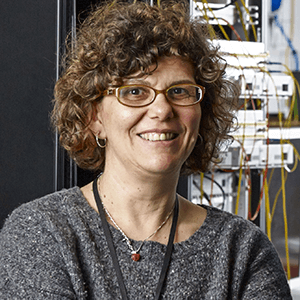

Plenary Speakers

9:45am – 10:30am
Prof Andrew Dzurak
UNSW, Australia

Tuesday 9am – 9:45am
Dr Ming-Jun Li
Corning, USA

Monday 9am – 9:45am
Dr Hiromi Oohashi
Furukawa Electric, Japan

Monday 9:45am – 10:30am
Prof Dimitra Simeonidou
Bristol University, United Kingdom

Prof Andrew Dzurak
Professor Andrew Dzurak is an innovator and entrepreneur in the global quantum technologies ecosystem, leading teams in both industry and academia. He is CEO & Founder of Diraq (see: diraq.com), a full-stack quantum computing company employing the silicon CMOS qubits developed by his team at UNSW Sydney over the past two decades. He is also concurrently a Scientia Professor in Quantum Engineering at UNSW Sydney, an ARC Laureate Fellow and a Member of the Executive Board of the Sydney Quantum Academy.
Andrew holds a PhD in Physics from the University of Cambridge (UK) and a BSc (Hons) from the University of Sydney. Prior to launching Diraq, he was the foundational Director (2007-2022) of ANFF-NSW, the NSW node of the Australian National Fabrication Facility. Andrew was also a key participant over 20 years ago in the establishment of the ARC Centre for Quantum Computer Technology by Professor Bob Clark, which now maintains the world’s largest focused collaboration on silicon-based quantum computing.
Andrew, with colleague Andrea Morello, demonstrated the world’s first silicon quantum bits (qubits) in 2012, and over the past decade has developed a naturally scalable qubit technology by reconfiguring the ubiquitous CMOS transistors that make up all of today’s silicon processor chips. This CMOS qubit technology underpins Diraq, which aims to redefine scalable quantum computing and bring practical commercial applications to the world via billions of qubits on single chip, compared to the hundreds of qubits that exist today.
He has published over 200 research papers, with more than 30 papers in Science and Nature group journals, and is co-inventor on more than 30 patents across 12 patent families. Andrew received the 2011 Eureka Prize for Scientific Research, and his demonstration of a CMOS-based quantum logic was selected by Physics World, UK as one of the world’s Top Ten Scientific Breakthroughs for 2015. His research team at UNSW is funded by Diraq, together with the Australian Research Council and the US Army Research Office.

Dr Ming-Jun Li
Dr. Ming-Jun Li joined Corning in 1991 and is currently a Corporate Fellow. He has contributed to many single mode and multimode fiber products for optical communications and specialty fibers for different applications. He is a member of the US National Academy of Engineering, a Fellow of Optica and IEEE. He was inducted into the US National Inventors Hall of Fame in 2022. He received the 1988 French National Prize on Guidedwave Optics, Corning’s 2005 Stookey Award, and 2023 John Tyndall Award. He was a member of teams who won 1999 R&D 100 Award for LEAF fiber, 2008 R&D 100 Award for ClearCurve fiber, 2008 ACS Northeast Regional Industrial Innovation Award, Corning’s 2016 Outstanding External Publication Award, and 2017 ACS Heroes of Chemistry Award. He has served as Associate Editor, Coordinating Committee Member, and Deputy Editor for the Journal of Lightwave Technology. He has also served as a guest editor for several journal special issues and as committee chair or member for many international conferences. He holds 285 U.S. patents and has published 7 book chapters and over 360 technical papers.

Dr Hiromi Oohashi
Hiromi Oohashi received a B.S. degree in applied physics from Waseda University, Tokyo, Japan, in 1985, and M.S. and Ph.D. degrees in physical electronics from the Tokyo Institute of Technology, Tokyo, Japan, in 1987 and 2007. After joining NTT Basic Research Laboratories, Nippon Telegraph and Telephone Public Corporation Tokyo, Japan, in 1987, she engaged in research on optical nonlinear processes in semiconductor materials. After moving to NTT Opto-electronics Laboratories in 1993, she engaged in research and development related to the temperature dependence and reliability of semiconductor lasers. She also worked on the development of optical semiconductor devices, especially tunable lasers, for WDM systems. In 2014, she moved to the Development Center of NTT Electronics Corporation. In 2019, she moved to Furukawa Electronics Co., LTD. Now she is a Senior Fellow at Furukawa Electronics Co., LTD. She was the chair of the IEEE Photonics Society Tokyo Section Chapter in 2013 and the president of the Electronics Society of the Institute of Electronics, Communication, and Information Engineers in Japan in 2016. She is a member of the Science Council of Japan.

Prof Dimitra Simeonidou
Dimitra Simeonidou is a Full Professor at the University of Bristol, the Co-Director of the Bristol Digital Futures Institute and the Director of Smart Internet Lab. Her research is focusing on the fields of high-performance networks, programmable networks, Future Internet, wireless-optical convergence, 5G/6G and smart city infrastructures. In the past few years, she is increasingly working with Social Sciences and Humanities on topics of climate change and digital transformation for society and businesses. Dimitra has been the Technical Architect and the CTO of the smart city project Bristol Is Open. She is currently leading the Bristol City/Region 5G and Open RAN pilots.
Dimitra is a member of the DSIT Supply Chain Diversification Advisory Council, a founding member of UKTIN and has led major research projects funded by UKRI and the EC. She is currently coordinating the DSIT REASON project developing blueprint architectures and technologies for 6G.
She is the author and co-author of over 700 publications, numerous patents and several contributions to standards. She has been co-founder of three spin-out companies developing solutions for connected smart infrastructures.
Dimitra is a Fellow of the Royal Academy of Engineering (FREng), a Fellow of the IEEE (FIEEE), Fellow of WWRF, a Royal Society Wolfson Scholar and member of UKCRC.
Key Dates
-
OECC 2024 Conference dates
30 June - 4 July 2024